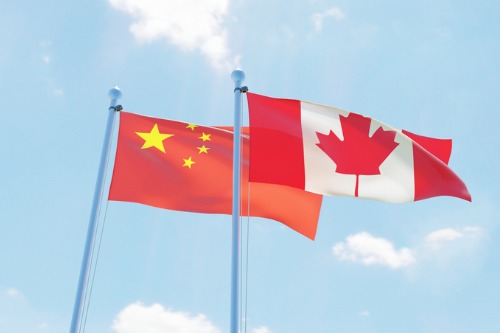RBC says growth concerns of the world's second largest economy should be less risky for Canadian investors

It seems like we’ve been waiting forever for China’s often mentioned rebound from the initial pandemic and its strict response to more recent infections and its economy remains fragile.
But as global investors express concern that the world’s second largest economy may not achieve the kind of growth they were once hoping for, a leading Canadian economist says it may not matter as much to investors here.
RBC Economics’ Claire Fan’s thought-leadership piece notes global concerns over China’s “wobbly consumer demand and weaker property market” but she says that the world will have to get used to lower growth from Asia’s economic driver because of its rapidly aging population.
There is some good news with Canada’s lower exposure to trade with China – countries that rely on exports to the country such as Germany, Australia, Japan, and South Korea are more exposed - although mineral production and exports are among the areas where risk for Canada is elevated.
Inflation vs. revenues
While slow growth in China could be a good thing, with reductions in commodity prices helping with Canada’s inflation battle, this is a double-edged sword, Fan acknowledges.
“Lower commodity prices mean less revenue for producers and exporters, and potentially less investment and hiring activity down the road,” she wrote. “That impact however will likely be concentrated among provinces that are more active in the commodity producing space, such as Alberta.”
For households, any lowering of inflation would certainly be welcomed and, as Fan highlights, weaker growth in China is also likely to help ease gasoline prices, which have started to creep up again.



